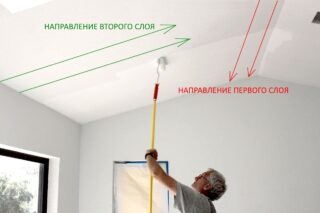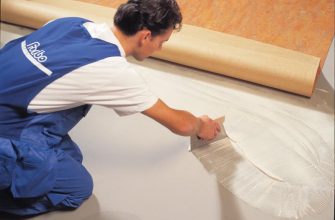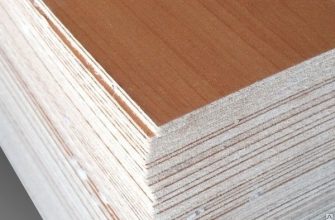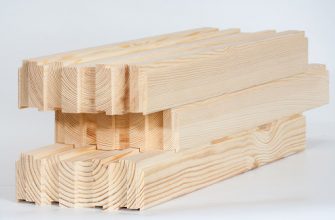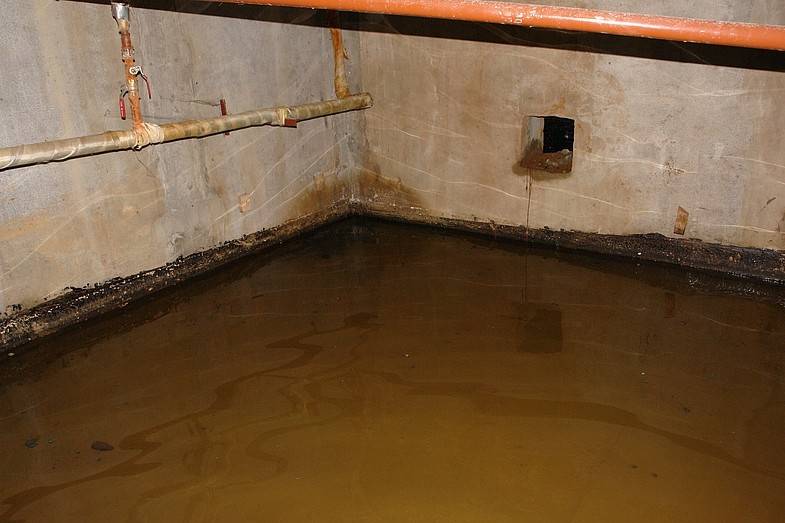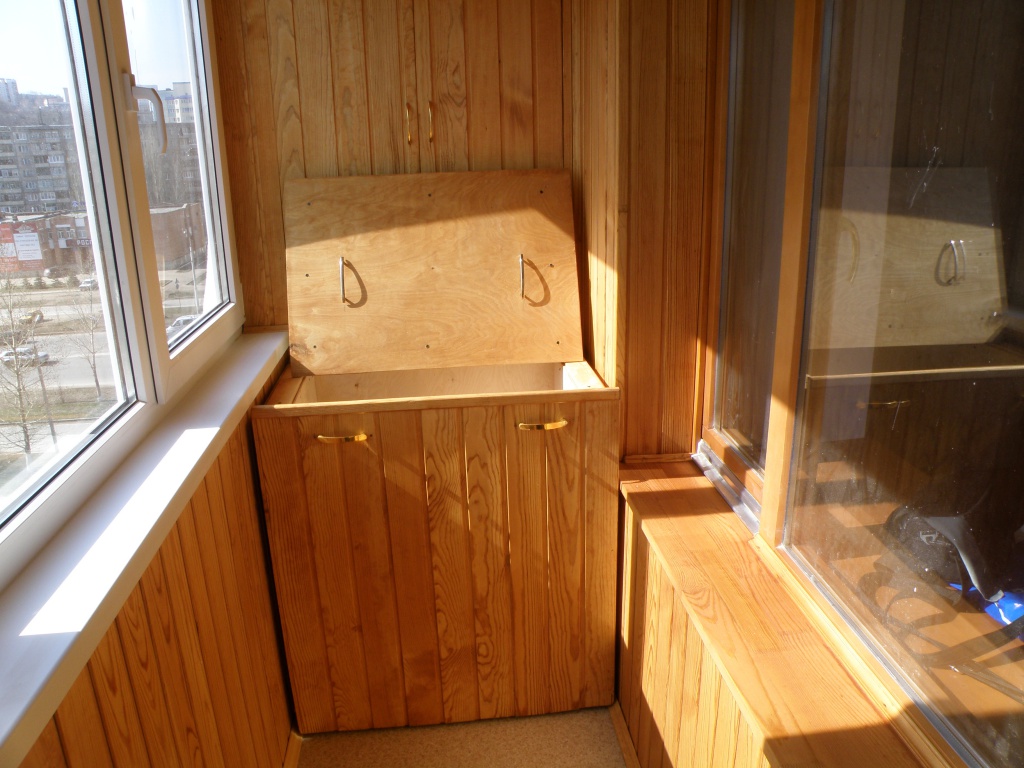The paint for the ceiling is selected in accordance with the design of the walls of the room and its interior. In addition, the environmental friendliness of the coating, its durability and the ability to operate in certain conditions are important.
Varieties of ceiling paints
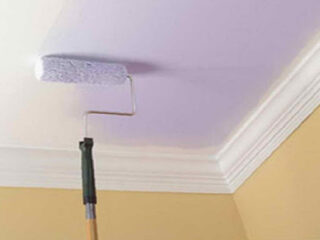
In the past, whitewash was the most common composition for painting the ceiling surface. This was explained by its availability and cheapness. However, such a coating does not differ in good performance characteristics: it begins to crack and crumble early. Now few decide to whitewash the ceiling. This is due to the emergence of new generations of products that form an even high-quality coating, resistant to moisture and available in a wide range of colors.
The most common practice is painting the ceiling with water-based paint. It is easy to apply, does not crumble, lays down in an even thin layer, well suited for wood and plasterboard objects. Used for ceiling decoration and water-dispersion compositions. Both categories of paints can contain different types of binders: latex, acrylic, silicone resins. It is not worth purchasing oil compositions for the ceiling: they form a vapor-tight shell that prevents the access of air masses.
Acrylic
These paints can be applied to surfaces of various types of materials. They tolerate high temperature and humid environments well. The painted surface can be washed. Due to the lack of odor, it is not necessary to wear a respirator when performing work. If you apply the product in 2-3 layers, small cracks in the surface are masked. Ceilings in the kitchen and in the bathroom can be painted with waterproof acrylic compounds.
Latex
Ceiling paint with latex additives is matte and glossy. The product adheres well to the plane of the ceiling, dries quickly, does not wear out, does not fade under the influence of sunlight. There is no odor during the staining process. The paint is suitable for use in rooms with humid air. Correct application technology involves preliminary coating the surface with an antiseptic primer to avoid colonization of mold colonies.
Silicone
They are suitable for use in different types of premises - both in the children's room or bedroom, and in the kitchen. Due to its elasticity, the coating well masks small cracks and cracks. It turns out to be very durable, retaining its saturation for up to 25 years and without changing its tone under the influence of the sun. Silicone products can be used in wet areas without the fear of mold or fungal colonies on the ceiling.
Silicate
Such formulations include water glass. They are well suited for a bathroom, kitchen, storage room, but they have certain requirements for the ceiling surface. The latter should not be highly absorbent, porous or loose. Due to their low plasticity, these products do not have the property of masking defects. But she is not predisposed to being affected by the fungus.
Choice of color and texture
When choosing how to paint the ceiling in an apartment, it is important to consider what the surface of the ceiling and walls is made of (drywall, lining, etc.), and also pay attention to the presence of cracks or other defects on it.Some types of coatings have high elasticity and mask irregularities well, others do not differ in such properties.
Consider how often you plan to wash the ceiling. A painted surface that has at least a slight gloss is easier to clean than a matte surface. In addition, such a ceiling makes the room visually spacious.
The color of the dye is selected in accordance with the design solution of the room. Sometimes it is practiced to add special color additives to the white base.
Preparatory work
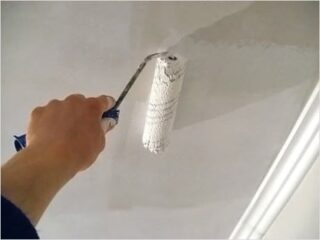
Before painting the ceiling, you will need to prepare it. If the previous coating was whitewashed, a simple crumbling test can be performed. For this, a roller is carried out along the ceiling plane. If the whitewash fragments do not fall off, you can apply the water-based composition directly on top of it. Otherwise, in order to repaint the ceiling, you will have to remove the old coating. It is pre-soaked with soapy water and then cleaned off with a spatula. Remaining dirt is removed with a wet cloth.
If there are cracks on the plane, they are sealed with putty. Then the surface is primed (this procedure is also performed when working on top of the whitewash). It is better to purchase a mixture for this from the manufacturer that produces the selected paint.
Required tools and materials
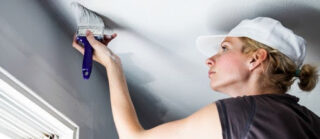
A spray gun, roller or brush can be used to apply water-based ceiling paint. The preferred type of tool is usually indicated on the packaging of the mixture. Most often, a roller is used for this purpose. When choosing it, you should adhere to the following recommendations:
- The most convenient models are those with a handle 0.3-0.4 m long.
- The larger the area to be treated, the wider the roller should be.
- The villi on the product must not fall out. It should also not have rough seams that leave stripes on the ceiling surface.
- Rollers made of foam rubber and velor are not suitable for these manipulations, since drips and bubbles often appear when working with them.
- For water-based compositions, a product with long fibers is purchased.
A roller or spray gun is suitable for paints with acrylics. If it is decided to use a brush, it can be up to 75 mm wide. This option gives the highest consumption of the coloring product, since the bristles absorb a large volume of it, and the layer is thick.
To protect the respiratory tract from debris and dust, it is worth purchasing a respirator and construction goggles. Hair is tucked under the headdress. You will also need a reliable ladder and masking tape.
To protect furniture and other surfaces (tiles, linoleum, etc.) from splashing, they are covered with polyethylene. If possible, remove unnecessary items.
Features of painting the ceiling with your own hands
It is also important to follow the manufacturer's recommendations regarding the temperature conditions of the application process.
If a roller is used, it is dipped with one side into the container, the excess composition is dropped on the ribbed surface and then the ceiling is painted from the window side. The stripes should be created with some overlap (0.1-0.15 m). When there is no mixture left on the tool, the resulting coating is smoothed.
Each layer of the composition is allowed to dry, the application of the next one is carried out perpendicular to the previous one.
When working with a spray gun, its torch must be positioned at right angles to the plane to be coated. To make the layer even, you need to keep the same distance between the tool and the ceiling all the time. The application rate should also be constant.
Popular manufacturers of ceiling paint
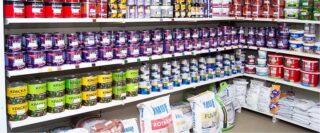
When purchasing paints and varnishes, homeowners strive to obtain the best price-performance ratio. It is advisable to choose compositions for covering the ceiling so that they are all from the same manufacturer and from lines compatible with each other.
Snowball
The head office of this company is located in Poland. It produces a wide range of hypoallergenic dyes. They are easy to apply to surfaces and usually have a short drying time.
Dulux
This is a UK trademark. The company's products are plastic, which allows leveling cracks without using putty. It is used in bedrooms and rooms where small children stay. The finished coating tolerates moisture well.
Tikkurila
This Finnish brand is one of the most popular in Russia. The assortment includes about fifty types of paint coatings, suitable for different types of materials.
Caparol
The firm is localized in Germany. The dyeing products it produces are distinguished by excellent performance. The surface tolerates washing well, even with a brush.

